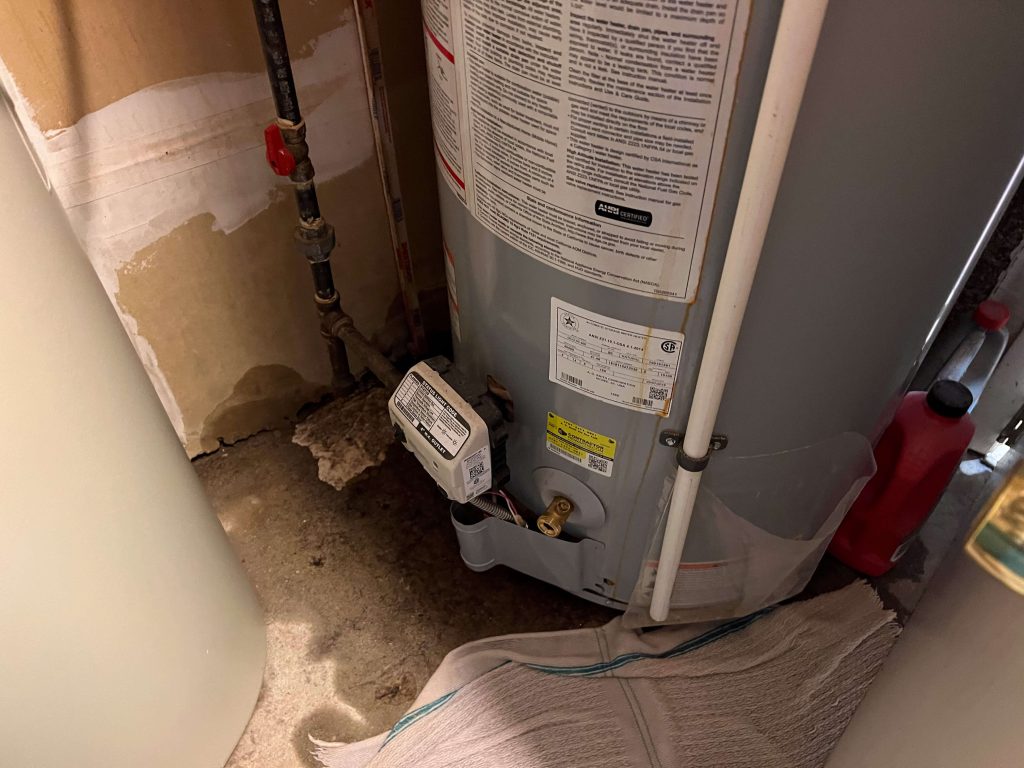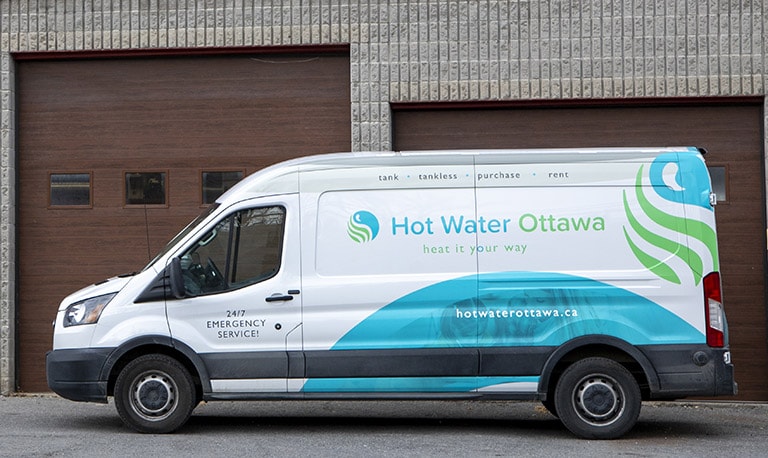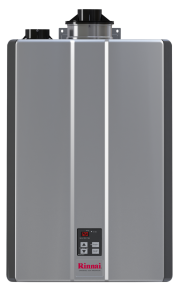Hot Water Heater Repairs

Hot Water Ottawa Provides Emergency Water Heater Repairs 24/7
A reliable hot water supply is essential for your family’s home comfort. That’s why Hot Water Ottawa offers dependable, professional water heater repair services.
We can have any make and model of water heater fixed in the Ottawa area, including heat pump water heaters, tankless water heaters, electric water heaters and gas hot water tanks.
Emergency?
For Hot Water Heater Emergencies Call: 613-729-5052
The Hot Water Ottawa “Nice Guy” Promise
We hire only fully licensed technicians who are clean and pleasant and can be trusted in your home. That’s our promise to you.
* We can repair any water heater that you own or rent from Hot Water Ottawa. Unfortunately, we are not allowed to work on water heaters rented from another company. If you’re not sure who supplies your hot water heater, check your Enbridge gas bill or take a look at the sticker on your tank.
Ottawa Water Heater Repair
When your hot water heater breaks down, it’s a serious inconvenience, possibly a disaster.

You need help right away, whether the water heater has simply stopped producing hot water or it’s flooding your basement due to a burst tank. Our friendly, expert Barrhaven water heater repair technicians pledge to be available for you 24/7. Yes, that includes weekends and even holidays.
What Hot Water Ottawa Will Do For You
- We’ll arrive promptly at the scheduled appointment time (or as fast as possible in an emergency situation).
- We’ll troubleshoot your water heater repair problem and explain all your options for repair or replacement, with complete information on the related costs.
- We provide understandable, informed answers to any questions you may have.
- We’ll quote the full price for our services up front. You will never be faced with “surprise” hidden fees.
- We’ll respect your home and clean up any mess we make while working there.
What to Do When Your Water Heater Stops Working
Get—and keep—your hot water heaters working properly with Hot Water Ottawa water heater installation and repair. We offer top-quality services, high-performing water heaters, and friendly, trustworthy technicians.
We service the entire Ottawa region and surrounding area—call us at 613-729-5052 or request a quote online.
Common Water Heater Repair Issues
The typical lifespan of traditional water heaters is 10-12 years, depending on the unit, the quality of water, and how often regular maintenance is performed. If you’re experiencing issues with your hot water heater, and you know your water heater isn’t old enough to warrant a complete replacement, it’s time to look at some common problems you might encounter.
Ottawa residents never want to see puddles of water when they walk into their utility room. A leaking water heater is a warning sign that something is majorly wrong, so diagnosing the issue is essential. If you see a leak, the first things you should do are:
- Determine where the leak is coming from: With several appliances clustered together in one small room, it’s possible that the leak is actually coming from a furnace drain line or water softener, for example.
- Turn off gas or electric power: This will keep the area safe until you can get a licensed plumber into your house. Natural gas water heaters will have a control dial on the side of the tank. You can shut off an electric water heater on your main electrical panel by switching the breaker that controls the gas water heater.
- Turn off water supply: A 200-liter hot water heater leaking is bad enough, so make sure you cut off the supply of incoming water as well. Most hot water tanks have a water supply valve or lever at the top that will shut off the supply.
- Call a professional plumber: Once things are temporarily under control, it’s time to get an Orleans professional in to do hot water heater repairs and service. Even a small tank can do severe damage if the problem isn’t fixed.
If you’ve turned on a faucet or shower and experienced an unusual spike in the temperature of the hot water, it might be a sign that something is wrong with your hot water tank. First, determine if someone in your house has adjusted the temperature on the hot water tank. Health Services Canada recommends you store hot water at a temperature of 49ºC (120ºF)—hot enough to protect against the growth of dangerous bacteria.
If the temperature setting is correct, but your hot water is scalding hot, the thermostat itself could be broken.
There are several reasons why your hot water tank might be shutting off. The good news is that this type of issue can usually be solved with a bit of elbow grease. Here are a few common reasons for a hot water heater that keeps turning off. Make sure the gas is turned off and the elements you’re working on are cool before attempting any repairs.
- Damaged or dirty thermocouple: This is an electrical switch located right next to the pilot light that keeps the natural gas supply flowing to power your hot water heater. If it’s dirty, you can try scrubbing it lightly with fine-grain sandpaper. If it’s bent out of shape, it might be possible to bend it back into its proper position.
- Dirty pilot light burner: If your pilot burner is dirty, the flame will flicker and appear pale yellow rather than the strong blue you’re used to seeing. You can scrape the inside of the burner tube carefully to get rid of any blockage.
- Dirty air inlet: Just like a furnace, air inlets in your hot water tank are fitted with fine mesh filters to keep out dust and debris. If these become too clogged, the airflow will be blocked and the gas burners won’t be able to maintain combustion. If you’re able to reach the filters (usually located at the bottom of the hot water heater), you can clean it with a vacuum cleaner brush designed for tight spots.
Another issue you might have is a faulty or damaged gas valve. Without a proper supply of natural gas, the whole system will shut down. Do NOT attempt to fix a broken gas valve on your own. If you’re experiencing this issue, or if you can’t clean the elements listed above, it’s time to call in a qualified, licensed professional.
No hot water coming from your water heater? There are a few possible issues that may occur with both gas water heaters and electric water heaters.
Gas hot water heaters:
- Gas leak: If you smell sulphur or rotten eggs, turn off the gas valve immediately and contact your utility company.
- Pilot light problems: If your pilot light has gone out, you can try relighting it with the self-ignite button or light.
- Faulty burners: If the burners stay off even on high thermostat settings, you’ll need to call in a professional.
Electric hot water heaters:
- Tripped circuit breaker: Make sure the breaker that controls your water heater is turned on. If the breaker keeps tripping, call an electrician.
- Failed heating element: This is a frequent problem for this type of water heater. If you have lukewarm water or no hot water whatsoever, this might be the issue.
- Wiring problems: Rodents might be to blame for loosened or broken wiring. Check to make sure all exposed wires are intact.
- Thermostat issues: A failed thermostat might be the culprit for your lack of hot water. Luckily, thermostat replacement on water heaters is relatively simple.
Troubleshoot Your Water Heater Issues
If your water heater isn’t producing hot water, work your way through this checklist and make sure it’s not something simple.
If you have an electric water heater, make sure the power supply is connected, it’s switched on, and that it’s actually getting power. Check your circuit breaker to ensure that it hasn’t tripped (if the lights are on in that room, you should be good).
If you have a gas heater, make sure your pilot light is lit. If it’s out, follow the instructions in the manual and carefully relight it.
It could be your water heater thermostat is set too low. Check your thermostat and raise it if it’s too low. If your water heater still doesn’t produce hot water, try resetting the system by flipping the circuit breaker off and on.
Sediment can build at the bottom of your hot water tank, especially if you have hard water in your plumbing. Try flushing your tank to clear it out. Flushing once a year will get rid of a lot of this buildup and improve your water heater’s performance. It will also extend the life of your tank.
Check the floor near your water heater and tank for leaks. Hopefully, there aren’t any.
Next, check the temperature pressure relief valve. The relief valve prevents pressure buildup inside your tank.
Turn off the power or gas and find the valve which is usually near the top of the heater. There should be a discharge pipe connected to it that runs downward. Place a bucket under the pipe to catch any runoff and lift the valve lever. You should hear a rush of air or see water exiting the pipe. If either of those happens, your valve is working.
If the valve doesn’t release water or doesn’t create a rush of air, or water keeps coming out after you let go of the lever, it could mean your release valve isn’t working. That could be a dangerous situation. Call a professional.
If you aren’t getting hot water, try resetting the system by holding down the reset button located on your water heater (check the manual). Also, double-check your power connections if you have an electric heater and your gas supply if you have a gas one.
In electric water heaters, it’s the heating elements that actually heat the water. If you’re getting lukewarm water or no hot water at all, it might be your heating elements are to blame. They wear out over time and eventually need to be replaced. If you have a multimeter, you can test them to see if they’re working right. If your elements do need replacing, you can follow the manufacturer’s instructions to replace them, or have a professional do it for you.
Should I Repair or Replace My Water Heater?
If your water heater isn’t producing hot water, work your way through this checklist and make sure it’s not something simple.
Trying to decide between repairing your water heater or water heater replacement? Here are some guidelines to help you decide:
1. Warranty
Check your warranty and see if you’re still covered, and what’s covered. If it’s under warranty, find out what is covered for repair or replacement.
2. Age of the Water Heater
Water heaters typically last around 8-12 years. If yours is getting up there, continuing to put money into repairs probably doesn’t make sense . Older units become less efficient and break down more often. Investing in a new one might be the way to go.
3. Extent of the Damage
For easy to fix issues like a broken thermostat or heating element, it won’t cost that much to repair. If you have a major issue like a leaking tank, a lot of corrosion, or a big mechanical problem, buying a new one makes more sense.
4. Efficiency and Energy Costs
Buying a new water heater will lower your monthly energy bills. If your ageing unit is outdated, replacing it with a more energy efficient tankless or hybrid model will cost upfront, but will save you money in the long run.
5. Hot Water Capacity
Was your current water heater keeping up with your family’s hot water usage? If not, it might make more sense to invest in a higher capacity model.
6. Cost of Repair vs. Replacement
Consider the cost of the repair compared to the cost of a new water heater. Do an analysis. If the repair cost is more than half the price of a new unit, it’s better to spend that money on a new water heater that costs less to run and will provide more years of reliable service.
If you’re still unsure whether to repair or replace your broken down water heater, a professional plumber will be able to inspect your unit and make a recommendation.
